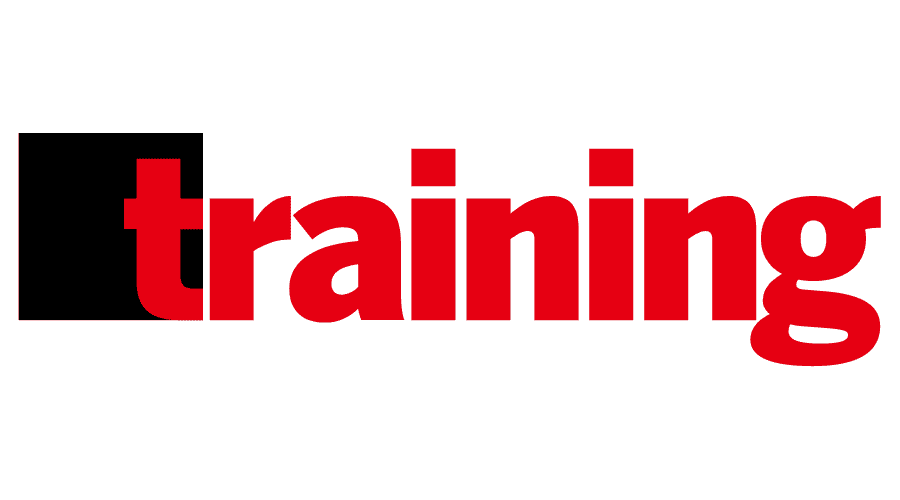
A resurgence in international business travel could trigger tax challenges for financial advisors. According to a Mercer report, the majority of mobility leaders expect business travel across the globe to either increase or remain steady in 2025. For financial advisors, an uptick in mobile work could complicate clients’ portfolio performances. To avoid tax penalties and a deflated client portfolio, financial advisors need to understand the risks of cross-border taxes as well as their potential financial advantages. Here are some of the most common cross-border tax challenges financial advisors may encounter, along with tips to keep clients from spoiling their gains with tax setbacks.

Many corporations are asking employees to return to the office following the surge in remote work that the 2020 pandemic created. When it comes to remote workers, however, it’s important to understand these mandates won’t simplify the complexities of taxation on equity compensation. In many cases, employees and benefits managers don’t realize the tax implications until it’s too late—sometimes years after the remote work took place. With fewer than 10% of workers wanting to be in the office full time, companies must proactively address these challenges to avoid unexpected tax liabilities down the road.

Economic uncertainty is complicating HR professionals’ global mobility plans. As a new administration transitions in the US, many leaders are holding their breath, waiting to see the final impact of inflation, immigration, tariffs, and other policies. Companies can’t afford to sit back and wait for conditions to settle—especially if they have a significant international workforce. Instead, HR professionals need to start building a resilient global mobility program that can withstand all types of economic pressure. Keep reading to learn how to develop a program that will benefit the company and employees no matter what happens in the future.

Corporate moves are surging. According to an Atlas Van Lines report, 70% of all companies reported an increase in employee relocations last year. Unfortunately, relocating employees in the U.S. or abroad could require tax obligations that not all HR and mobility professionals are prepared for. What’s more, many leaders often assume their relocation management company (RMC), mobility tax provider, or local payroll provider will automatically handle tax compliance for their domestic and international moves. That’s not always the case. This article will look at the common misconceptions about relocation tax compliance and lay out tips to help your team avoid tax violations and maximize tax savings for moving expenses.
-2.png?width=752&height=241&name=Untitled-Project%20(1)-2.png)
As the workforce continues to race toward remote work, digital nomads – office-less, remote workers – are increasingly common. Latest figures suggest there are there are more than 40 million digital nomads worldwide in 2024, and 17.3 million of these are in US alone (whose numbers were up 2% in 2023 compared to 2022). The result of this, however, is that countries are pouncing on this growing trend and providing a relatively new visa option: the digital nomad visa.
-2.png?width=752&height=241&name=Untitled-Project%20(1)-2.png)
HR professionals, mobility managers, and high-earning international employees have a tax problem – and it’s only getting worse. As return-to-office mandates potentially start to wind down, many experts expect remote work to increase. However, most business leaders and employees aren’t prepared to handle the tax risks this upswing in global mobility triggers. But failing to prepare could ruin business reputations, overwhelm HR departments, and create surprise tax obligations. So how can CHROs and other HR professionals begin to navigate global taxes for international employees? Fortunately, there are plenty of steps leaders can now take now to avoid tax violations in the future.

As remote work continues to charge full steam ahead, digital nomad visas are popping up at an increasing rate around the globe. These visas allow remote employees to legally conduct business from within countries abroad. However, HR and other corporate leaders often misunderstand how these visas work — and how little they protect the company from additional tax liabilities. As more countries offer digital nomad visas, HR leaders need to ensure their employees aren’t ignoring the tax implications that arise out of remote work.

Perhaps a more telling fact has been the decline in volume in the administration of these traditional equalized assignments at mobility companies and tax firms. “The percentage of traditional, tax-equalized assignments has dropped precipitously over the last three decades,” says Brett Sipes, an industry veteran with over 26 years of experience providing mobility tax services at firms like KPMG, EY, and currently GTN. Sipes continues, “In the late 1990s, it was common for over half of a company’s mobile workforce to be authorized for tax-equalized services under a mobility program. In recent years, this percentage of tax-equalized employees has dropped to less than 10% for many companies. A recent trend we are seeing now is that companies are transferring employees to be employed in the host location, even if it is anticipated the employee will transfer back to the original home location within a couple of years or less.”

In recent years, the global workforce has witnessed a significant shift toward remote work and the rise of digital nomads — individuals who work entirely over the internet while traveling and have no fixed place of business. As many countries are recognizing this growing trend, the solution — the digital nomad visa — is increasing in popularity. The visa, offered under varying names, is currently available in more than 70 countries.

May 2024 | Jen Stein
Business travel is roaring back to pre-pandemic levels, and more workers than ever have access to hybrid or remote work arrangements. But all this state- and nation-hopping can run workers and their employers into challenging tax situations. But as Jennifer Stein of Global Tax Network explores, keeping communication lines open can be the key to protecting workers and companies.

Taxes can be intimidating, time-consuming, and confusing for any employee. But tax complexities shoot through the roof for international employees, business travelers, and remote workers. If mobile and remote employees don’t understand their tax obligations, they risk violating laws, losing compensation, damaging the company’s reputation, and more. However, HR professionals can reduce this risk and provide an exceptional employee experience by focusing on one thing: communication.

April 2024 | Tara Hagen & Mandy Zeman
Starting in May 2024, the U.S. Securities and Exchange Commission’s new, shorter settlement cycle kicks in—and it could leave businesses scrambling. HR, payroll, tax, and equity teams will have one fewer day to deliver shares and manage the related equity compensation tax implications. Plus, when the settlement window is shortened, it will focus more on the complexity of managing a mobile workforce.

January 2024 | Jen Stein
Why does duty of care training need an update in the age of remote work?
Most business leaders realize remote and hybrid work have significantly transformed the way organizations operate. However, amid this shift, one critical aspect that often goes unnoticed is the need to address the duty of care training and safety measures concerning remote workers’ tax compliance obligations.

January 2024 | Tracy Novotny
Return-to-office calls notwithstanding, many observers expect remote or hybrid work to grow in popularity this year and beyond. Global Tax Network director Tracy Novotny explores the tax and compliance implications corporate leaders need to know for 2024.

With the continued prevalence of remote work, most small and growing business leaders could be exposing their companies to tax and compliance risks. If your small or growing business offers remote work opportunities, it’s worth preparing for changes in 2024. Here are a few trends to keep an eye on if you want to avoid remote work tax or compliance headaches in the coming year.

Employees are moving, and technology infrastructures need help to keep up. An AIRINC survey found global mobility activity has increased for 60% of companies in the last year. However, only 14% of those company leaders say they “strongly agree” that they have the right technology to meet the general administrative needs that spring out of their mobility programs. That figure must change if organizations want to avoid tax compliance and immigration headaches.
Earlier this fall, Accounting Today released its 2023 Best Firms to Work For results, with two Minnesota-based firms scoring high in the midsized employer category. Ranking third among 53 midsized firms was St. Paul-based Mahoney. Coming in 18th was Global Tax Network (GTN), which is headquartered in Maple Grove and has remote staff in about 15 states.

With so much attention drifting toward the productivity of remote workers in the post–COVID-19 environment, many CFOs are overlooking the related critical tax and compliance issues. As remote work continues to grow, companies could run into massive consequences in the near future if tax and compliance problems are neglected. This article will shine a light on the most urgent tax and compliance challenges that are springing up out of remote work, and highlight what CFOs need to do to protect companies from these concerns.

More than ever, small and growing businesses are adopting remote work programs. But there are safety and compliance dangers that spring out of remote work—and business leaders don’t always recognize them until it’s too late. If you own a business that offers remote work, you need to proactively plan to ensure employees are safe and you’re upholding your duty of care responsibilities.

Centuro Global, the leading AI-powered SaaS platform that helps companies expand globally and compliantly all in one place, has announced it is developing a first of its kind international remote working and assignment compliance tool, in partnership with Global Tax Network (GTN).
With the rapid rise in "workation" requests and demand for remote working from employees, global mobility teams, heads of HR and talent management leads will now be able to assess, approve and begin processing "workation" requests in a single one-stop shop.

Companies with a growing remote workforce could have significant mobile equity compliance problems brewing, and the consequences could land on IT’s shoulders. Tara Hagen, director at Global Tax Network, points out the mobile equity compliance risks that are growing on the horizon and break down ways IT can avoid the onslaught of extra work it could create.

About two-thirds of American employees work remotely at least part of the time. Ensuring compliance means more than just making sure they log on at the right time. Tax expert Jennifer Stein talks about the importance of aligning all your organization’s stakeholders to reduce risk.

While it's all too common for companies of all kinds to keep their employees in the dark about the state of the business — breeding rumors, fear and worse — the top workplaces in the accounting profession take the opposite approach, sharing plenty of information (though not, of course, every little detail) about the present circumstances and future prospects of the firm to keep staff engaged and optimistic.

Everything from the rise in telehealth trends to the COVID-19 pandemic has increased remote work within the healthcare sector. As companies face shortages and risks from face-to-face encounters, it’s likely that the remote workforce will only continue to grow within healthcare. However, if your healthcare organization offers equity compensation, such as stock options or restricted stock, remote work could cause substantial tax implications. Healthcare leaders who spot and avoid these potential mobile equity challenges now could prevent tax violations, regulatory penalties, and talent shortages down the road.

Much of the nonprofit sector turned to remote work out of necessity during the COVID-19 pandemic. Now, as offices reopen, organizations need to decide how remote work will fit into their business strategy. What many leaders don’t realize is that remote work carries unique risks and challenges — especially when it comes to tax and compliance issues. However, by adopting a proactive approach to remote and hybrid working arrangements, nonprofits can avoid these headaches and chart a more successful course for the employees and their organizations.

Remote work exploded during the pandemic, and it’s likely to continue. However, many payroll departments are still trying to grasp the tax and withholding requirements that stem from this rapid shift in work. If you don’t plan to limit risks soon, your remote workers may cause your company massive headaches in the near future.

As international travel picks up, energy corporations are turning to mobile employees to fulfill their international staffing needs. However, as mobile work gains steam, tax and compliance risks continue to grow as well—unbeknownst to most corporate leaders. Many businesses, unfortunately, are failing to set up an adequate plan to protect against tax violations in the home and host locations of their employees, and it could cause tax nightmares in the near future.

2022 continues to be a challenging year for global retailers. Inflation, a potential recession, labor shortages, supply chain disruptions and major geopolitical tensions have created significant supply and demand uncertainty. These challenges call into question the viability of “business as usual,” with retail executives needing to reevaluate the location of operations and the availability of talent.

The COVID-19 pandemic pushed employees into unanticipated work-from-home arrangements. Now, as companies adopt more permanent remote-work routines, compliance risk is skyrocketing, and corporate leaders need to start planning to avoid unwanted consequences.

Stock options and other equity-based compensation are designed to attract and retain top employees, but with the rise of remote work, tracking tax withholdings on these perks has become more challenging than ever.

The way employees work continues to morph as a result of COVID-19, and it appears the remote workforce is here to stay. However, most HR departments haven’t adjusted to this uptick in remote work. With more and more employees working across state and international borders, this workforce trend is poised to set off a multitude of problems, including potential tax violations. As long-term remote work sparks a growing number of consequences, HR professionals need to reassess their remote work policies now to avoid long-term headaches in the future.
It’s time for tax and mobility professionals to brace for change. The pandemic has accelerated remote workforce trends, and working from anywhere is becoming a baked-in feature at companies. For accounting offices and mobility leaders, the realities of managing a remote workforce, both positive and negative, are setting in.

Zoya Malik spoke to GTN’s president David Kolb about the synergies gained in becoming a member of Allinial Global and the impact of the pandemic on tax legislation and providing advisory services to the global mobility market.
Read more.

A landslide of remote work requests is crashing into businesses, and it’s revealing alarming holes in the way corporations are managing employee mobility. Chances are, remote work is already bogging down your HR department, and if you don’t act soon, your company and employees could be exposed to global tax compliance and employee incentive problems.

With tax season underway, here’s what you need to know about how the American Rescue Plan affects mobility.

With tax season underway, here’s what you need to know about how the American Rescue Plan affects mobility.
© 2026 Global Tax Network TERMS OF USE AGREEMENT PRIVACY POLICIES PRIVACY AND SECURITY